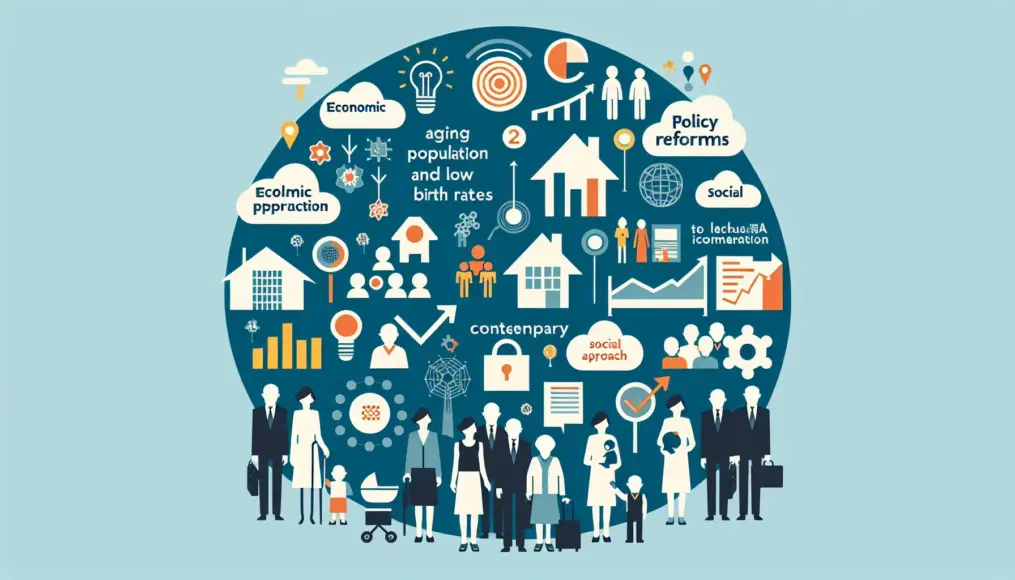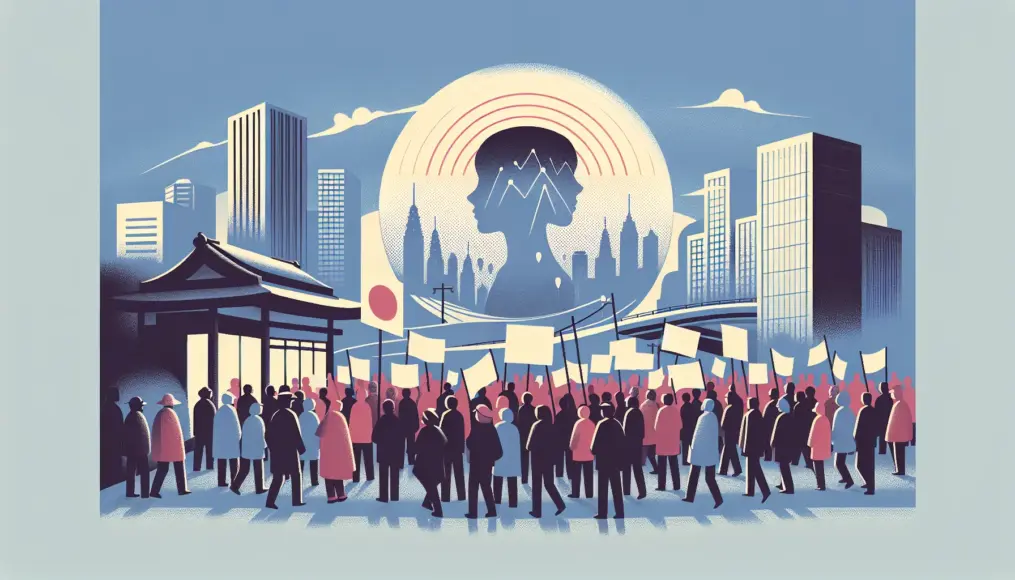The principle of equality is a crucial concept in our society. Looking back through history, we can see various groups of people who have fought for equality. In today’s world, understanding how this principle influences our politics, economy, and social movements is essential for building a better future.
Equality permeates many aspects of our lives. For instance, how does equality in election processes and policy-making support our democracy? In the economic sphere, how does it contribute to reducing income disparities and fostering economic growth? These are vital questions worth exploring.
The impact of the principle of equality is immeasurable. It offers important perspectives as we consider the future of our society.
- Historical Background and Modern Definition of Equality
- The Role and Impact of Equality in Politics and Economics
- Exploring the Relationship Between Social Movements and Equality
What is the Principle of Equality?
The principle of equality is the idea that everyone should be treated fairly, and it forms the foundation of our society. This principle plays a crucial role in protecting individual rights and eliminating discrimination and inequality. Looking back through history, we can see how the principle of equality has evolved through various social movements and political reforms. Understanding this principle is key to addressing the many issues we face in modern society.
In this section, we will explore the historical background of the principle of equality and its definition in contemporary times. By examining how past events have influenced modern values and laws, we can gain a deeper appreciation for the importance of equality.
Historical Background
The origins of the principle of equality date back to ancient times, but it significantly developed during the modern era. Historic events such as the Declaration of Independence and the French Revolution served as pivotal moments in spreading the idea of equality. These events illustrated that respecting individual freedoms and rights is essential for societal progress.
Furthermore, as we entered the 20th century, various social movements emerged, advocating for women’s rights and the abolition of racial discrimination. This demand for equality transitioned from being an abstract concept to becoming embedded in actual laws and policies.
- The principle of equality has existed since ancient times but evolved in the modern era.
- The Declaration of Independence and the French Revolution helped to spread the idea of equality.
- Social movements in the 20th century significantly contributed to achieving equality.
Definition in Modern Times
Today, the principle of equality is defined in various ways. Legally, it requires that all individuals are equal under the law. This legal equality prohibits discrimination and ensures that everyone is treated fairly. However, legal equality alone is not enough; substantive equality is also essential. This refers to efforts needed to address economic disparities and social inequalities.
Additionally, the principle of equality plays a vital role in many areas, including education, employment, and healthcare. Achieving equality in these sectors enables everyone to lead fulfilling lives. In contemporary society, equality is not merely an ideal; it is a concrete goal that we should strive to achieve.
If you found this article interesting, you might also enjoy this piece: “What Impact Does Public Funding of Election Costs Have on Politics?.” This article provides an in-depth look at public funding for election costs and its connection to enhancing political transparency and fairness, closely tied to the principle of equality.
- The modern definition of equality encompasses both legal and substantive aspects.
- Legal equality prohibits discrimination and ensures fair treatment.
- Achieving equality in education and employment leads to a richer life for all.
The Role of Equality in Politics
The principle of equality is a fundamental element that underpins democracy. Ensuring that every citizen has an equal voice and the opportunity to participate in politics is essential for building a healthy society. Understanding how equality manifests in electoral systems and policy-making is directly related to our lives. In this section, we will delve into the role of equality in the political arena.
Electoral systems serve as the basic framework for achieving equality. When all citizens have the right to vote fairly and select their representatives, it helps maintain transparency and trust in politics. Equality also plays a crucial role in policy-making, as diverse opinions and needs are reflected to lay the groundwork for a better society.
The Impact on Electoral Systems
The principle of equality is particularly important within electoral systems. The idea that every citizen’s vote carries the same weight is fundamental to democracy. When equal voting rights are ensured, a variety of perspectives can be represented in politics. However, various challenges exist within electoral systems. For instance, economic disparities and differences in education can influence voting behavior, making it difficult to achieve true equality.
Moreover, having an equitable electoral system is vital for enhancing political representation. For example, when the voices of women and minorities are included, it leads to the formation of more inclusive policies. This, in turn, allows politics to better respond to the needs of society as a whole.
- Equal voting rights form the foundation of democracy
- Economic disparities can impact voting behavior
- Reflecting diverse opinions leads to the creation of inclusive policies
Equality in Policy-Making
In the realm of policy-making, equality ensures that all citizens can express their opinions fairly and influence policies. This creates an environment where just policies can be developed without bias towards specific groups or individuals. When equal exchanges of opinions occur, policies can be formulated with the overall interests of society in mind.
Furthermore, when equality is reflected in policies, balanced approaches to various societal challenges become possible. For instance, in economic and educational policies, considering the opinions of all individuals leads to more effective solutions. Thus, equality in policy-making is a crucial factor that contributes to the overall well-being of society.
If you’re interested in this topic, we encourage you to read our article, “What is Japan’s Electoral System? Exploring Its History and Contemporary Challenges,” to deepen your understanding of electoral systems. This article provides a detailed exploration of the history and various challenges that lie within, offering valuable insights into the role of equality in politics.
- Fair exchanges of opinions are necessary for policy-making
- Just and unbiased policies can be realized
- A balanced approach to societal issues becomes possible
The Impact of Equality on the Economy
The principle of equality in economics significantly influences the overall welfare of society and sustainable growth. Addressing income inequality is particularly vital, as it contributes to economic stability and development. When equal opportunities are provided, everyone can participate in economic activities, ultimately enhancing productivity across society. In this section, we will explore the impact of equality on the economy, focusing on the correction of income disparity and economic growth.
Achieving an equitable economic environment is essential not only for alleviating social discontent but also for invigorating the economy. By creating conditions where businesses and individuals can compete fairly, the entire economy can function more healthily.
Addressing Income Inequality
Correcting income inequality is a crucial aspect of equality in economics. High levels of income disparity not only lower the living standards of the poor but also undermine the economic vitality of society as a whole. When income is distributed unevenly, consumption tends to decrease, which can slow down economic growth. Therefore, addressing income inequality is a critical step towards realizing a sustainable economy.
Potential policies include tax reforms and enhancements to social security systems. These measures can strengthen support for low-income individuals and improve the overall distribution of income. As a result, this can lead to greater economic stability and growth.
- Addressing income inequality boosts economic vitality
- Unequal income distribution decreases consumption
- Tax reforms and social security enhancements can be effective solutions
Equality and Economic Growth
In the context of economic growth, the principle of equality plays a significant role as well. Providing equal opportunities creates an environment where everyone can maximize their potential. This fosters creativity and productivity, ultimately contributing to overall economic growth. Particularly in the fields of education and employment, achieving equality allows more individuals to engage in economic activities.
Moreover, strengthening equality enhances social stability. With reduced social discontent and conflict, economic activities become more vibrant, laying the groundwork for sustainable growth. Thus, the principle of equality becomes a key factor in promoting economic growth.
For those interested in a deeper understanding of the impact of equality on the economy, we recommend exploring additional articles. In particular, the article “Examining the Economic and Social Impacts of Declining Birth Rates” delves into the changes in economic growth and social structure in Japan amid declining birth rates. This perspective can help broaden your understanding of the relationship between economic equality and growth.
- Equal opportunities promote economic growth
- Creativity and productivity improve
- Social stability invigorates economic activities
The Relationship Between Social Movements and Equality
Social movements are recognized as vital tools for achieving the principles of equality. Throughout history, countless individuals have fought for equality, significantly contributing to societal transformation. This chapter explores how historical social movements and contemporary equality initiatives promote the principle of equality.
Social movements do more than assert individual rights; they possess the power to change societal consciousness as a whole. By learning from past movements and understanding how current initiatives are evolving, we can reaffirm the importance of equality.
Historical Social Movements
Historical social movements have become crucial milestones in realizing the principles of equality. For instance, the American Civil Rights Movement and the Women’s Rights Movement saw many individuals unite in the quest for equality, driving significant societal change. These movements not only led to alterations in laws and systems but also catalyzed a shift in societal values.
Moreover, these movements demonstrated that equality is not merely an ideal; it is a concrete goal to be achieved. We witnessed firsthand how many voices rose up and took action, establishing the principles of equality in the process.
- Historical social movements are vital milestones for achieving equality.
- The Civil Rights Movement and Women’s Rights Movement had a profound impact.
- They served as catalysts for changing societal values.
Contemporary Equality Movements
Today’s equality movements build upon the legacies of the past while addressing new challenges. Issues such as LGBTQ+ rights, environmental concerns, and economic disparity are at the forefront of these movements. They illustrate how various social challenges are interconnected with the principle of equality.
Additionally, modern movements harness the power of social media and the internet to spread information, engaging a wider audience than ever before. This has allowed the principles of equality to resonate further, amplifying diverse voices. Contemporary equality movements are evolving to incorporate more inclusive and varied perspectives while learning from past lessons.
For those interested in delving deeper into contemporary equality movements, the article “Student Movements and Political Change in Japan” is highly recommended. It offers an in-depth look at the impact of student movements on Japanese politics and highlights the significance of the underlying social movements. Understanding these historical attempts to realize the principles of equality can enhance our appreciation of today’s initiatives.
- Contemporary equality movements are tackling new challenges.
- LGBTQ+ rights and environmental issues are key themes.
- The use of social media is accelerating the spread of these movements.
Summary
The principle of equality is an essential value in our society, playing a crucial role across politics, economics, and social movements. Throughout history, the demand for equality has grown, sparking various social movements aimed at advancing the respect for individual rights and creating a more just society.
Moreover, the principle of equality in economics contributes to reducing income disparities and fostering sustainable growth. When everyone has fair access to opportunities, it energizes the economy as a whole. Today’s equality movements are leveraging social media and other platforms to incorporate diverse perspectives, striving for a more inclusive society.
- The principle of equality is a foundational value that shapes society.
- Historical social movements have contributed to the achievement of equality.
- Economic equality leads to sustainable growth.
I hope this helps deepen your understanding of the principle of equality and inspires you to think about a better future for society as a whole. We’d love to hear your thoughts and opinions in the comments!



Comment